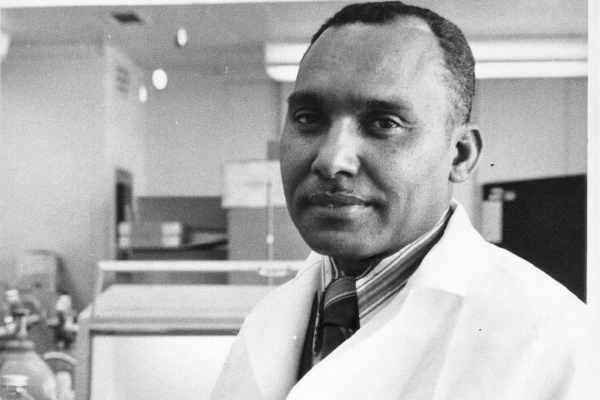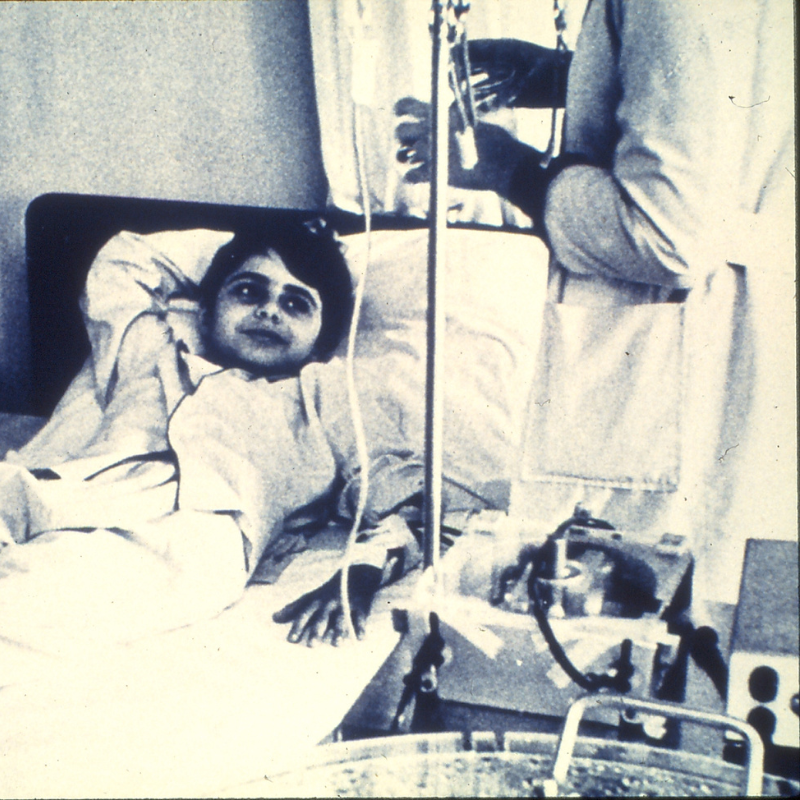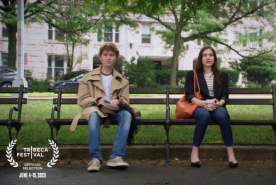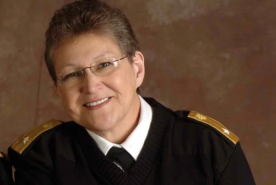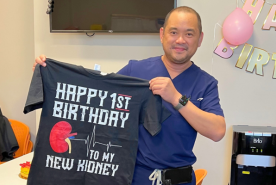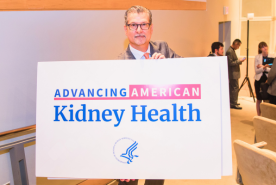February 03, 2025
Dr. Samuel Kountz from UCSF History Collection
Throughout history, amazing medical pioneers have shaped the history of kidney care. Their work changed millions of lives and continues to make a difference today. Among these trailblazers is Dr. Samuel L. Kountz, a pioneering kidney transplant surgeon who helped lay the foundation for modern transplantation.
Read on to explore Dr. Kountz’s life, achievements, and impact on the kidney transplant field.
Growing Up
Dr. Kountz was born in Arkansas in 1930 during racial segregation. This systemic barrier made accessing quality education and healthcare difficult.
He attended elementary through high school in a one-room schoolhouse. After graduating, the Agricultural, Mechanical, and Normal College rejected Kountz's application. Dr. Kountz appealed to the president and was admitted. He graduated third in his class.
Dr. Kountz then earned a master’s degree in biochemistry from the University of Arkansas. He went on to graduate from the University of Arkansas School of Medicine in 1958.
Dr. Kountz’s passion for surgery grew during his residency at Stanford University. He specialized in kidney transplantation, a relatively new field of medicine at the time.
7 Groundbreaking Achievements
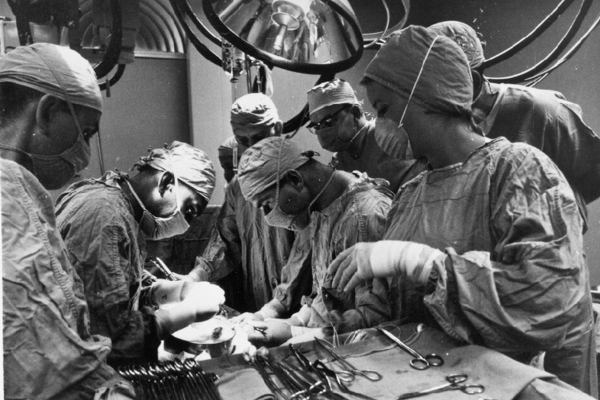
Dr. Kountz and team performing kidney transplant surgery from UCSF History Collection.
During Dr. Kountz's residency, he participated in the first West Coast kidney transplant. This was the first of his many achievements.
Performed a Kidney Transplant Between Non-Identical Twins
In 1961, Dr. Kountz performed the first kidney transplant between non-identical twins. His success showed that transplantation beyond identical siblings is possible.
Created the Belzer Kidney Perfusion Machine
In 1967, Dr. Kountz turned his attention to the donor kidney. He helped create a machine that preserved kidneys for about 28 hours after removal from a donor. It gave professionals more time to get the kidney to the recipient.
This innovation laid the foundation for future advancements. Today, NKF continues to invest in new technology like this. In 2024, NKF’s Innovation Fund supported 34 Lives, a cutting-edge group that may further improve organ preservation.
Subscribe today!
Join the NKF Blog Newsletter
Get inspirational stories and kidney disease resources delivered to your inbox every month. You'll gain practical insights and expert advice to help you better understand and manage your kidney health no matter where you are on your kidney journey.
Discovered High-Dose Steroids May Prevent Organ Rejection
In 1972, Dr. Kountz discovered steroids could help prevent kidney transplant rejection. Steroids suppress the immune system, making it less likely to attack the transplant.
Learn more about kidney transplant rejection.
Advanced Tissue-Typing Tests
As the 70s continued, Dr. Kountz discovered a better way to match kidney donors and recipients. He studied human markers on cells that help the immune system identify what belongs in the body and what doesn’t. If a donor's markers are too different from the recipient's, the immune system may attack the transplant. Dr. Kountz's research created the foundation for today's tissue typing methods.
Learn more about tissue typing for transplant.
Advocated for Organ Donation
Dr. Kountz also raised awareness about organ donation. He performed a kidney transplant live on national television on the Today show. This demonstration led to a surge of public interest. Over 2,000 people signed up to become organ donors after watching.
Whether you need a transplant or want to learn more about donating one, NKF is here. Learn more about kidney transplantation.
Fought for Healthcare Equity
Dr. Kountz was a fierce advocate for underserved communities. In 1972 he moved to New York City. He acted as a professor, chair of a surgery center, and a chief of surgery. His goal was to improve healthcare for the Black/African community living there.
Dr. Kountz also mentored Black/African American students. His success proved it was possible to excel in medicine. He inspired countless young Black/African American students to do the same.
NKF envisions a future where everyone has access to quality kidney care. We launched KIDNEY EQUITY FOR ALL™ to fight for this future.
